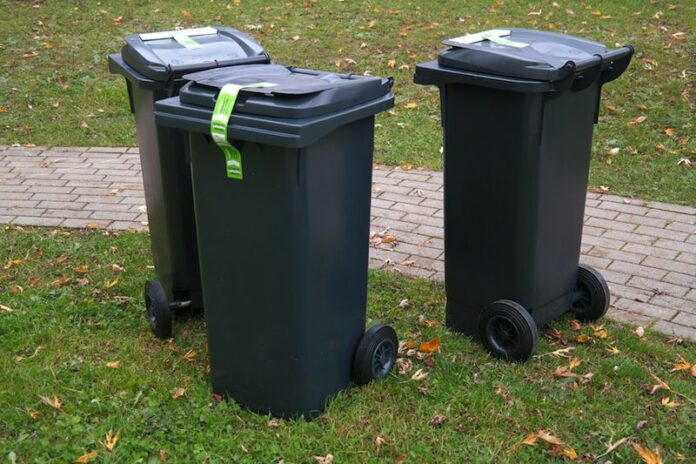The Healdsburg City Council agreed to a new 15-year term contract with Recology for garbage services with a new residential rate of $26.12 for 32-gallon bins at its meeting Monday night, May 18.
While the new rate is about a $9 increase for customers, it’s still a lower rate than other nearby cities according to Garth Schultz, a principal consultant at R3 Consulting Group, which assists municipalities with solid waste planning, procurement and negotiations.
With a unanimous vote among council members to accept the contract, the new rates will go into effect on Jan. 1, 2021.
The current rate for the most basic 20 gallon bin is $12.69 and the new rate will be $19.67, about a $6 increase. The current rate for a 32 gallon bin is $16.85 and the new rate will be $26.12, about a $9 increase. The 64 gallon bin rate is $24.22 and the new rate is $37.54, about a $13 increase. The 96 gallon bin rate is $32.90 and the new rate is $50.99, an $18 increase.
The current rate for weekly commercial service for removal of 1.5 cubic yards is $216.44 and the new rate will be $335.48, a $119 increase. The current rate for two cubic yards of removal is $271.48 and the new rate will be $420.870, an $149 increase. The current rate for three cubic yards removal is $372.97 and the new rate is $578.10, an $205 increase. The current rate for four cubic yards is $465.35 and the new rate is $721, a $255 increase and the current rate for six cubic yards is $594.76. The new rate will be $921.87, a $327 increase.
“The current rates in Healdsburg and much of Sonoma County have been legacy rates from prior franchisees, which Recology has demonstrated here, does not meet the cost of services. One of the outcomes of these negotiations is an increase in rates such that the revenue from Recology’s ratepayers intend to meet the cost of services,” Schultz said of the rate changes.
He added that Healdsburg’s rates, with the increase, are still lower than other nearby cities. The second largest bin — 32 to 35 gallon has a rate of $29.15 for Windsor and $33.13 for the city of Santa Rosa.
Councilmember Joe Naujokas pointed out that while costs are going up, if you decrease your garbage bin size then it’s not too drastic of an increase. He said this way, it may encourage residents to be more careful on what they throw out.
“Yes, the costs are going up fairly significantly, but I also want to point out, that if one were to reduce the size from a 32 gallon to a 20 gallon that the increase is really almost negligible. There is a real opportunity here for us to educate our residents to rethink what they are throwing out,” Naujokas said.
Schultz said there will be notifications sent out to the residents about the rate increases and they’ll continue to provide information on what items can go in which bin, garbage, compost or recycle.
“The big change in my behavior has been using the green bin for food waste. I had no idea that you could use it for food waste and that is a significant amount of waste,” Naujokas said.
For instance, those greasy pizza box containers can go into the green compost bin, according to Schultz.
New contract negotiations started in July 2019 and spanned six meetings and four different proposals. The other contract agreement outcomes include updated city fees, a $20,000 annual zero waste initiative fund for city projects, an electrical vehicle pilot program, the addition of a 0.5 full time zero waste specialist, the removal of biosolids collection from the agreement, the addition of a trash enclosure plan for the Swenson building (located at 349 Healdsburg Ave.), removal of the pay in advance discount (although people can still pay in advance if they desire), recycling and food scraps for no additional cost, additional street sweeping, community cleanup events and an annual curbside collection, just to name a few.
“We’ve also folded in support for homelessness camp cleanups and ongoing services within the city,” Schultz said.
In terms of electric vehicles, Councilmember David Hagele asked how close we are to seeing the use of electric garbage trucks and Schultz said while they will do a pilot, they are about five to six years away from an option that is more usable. He said currently, it takes two electric trucks to do the work of one regular truck.









